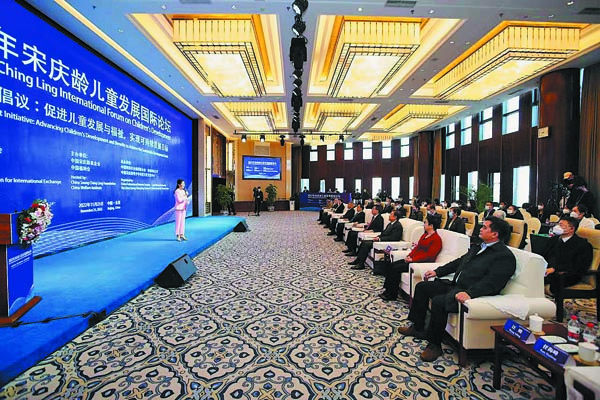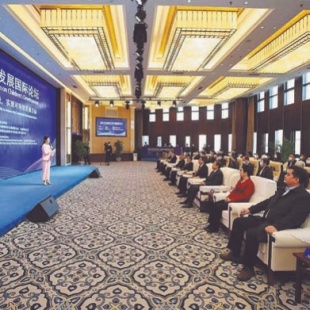Forum looks at opportunities and challenges facing preschool sector


China has made great strides in developing preschool education over the past decade with a ballooning number of children getting equal access to affordable kindergartens of improved teaching quality, according to experts at a forum to address the sound growth of children.
The coverage rate of preschool education has lifted remarkably over the past 10 years as the number of kindergartens across the country increased by 76.8 percent from 128,000 in 2011 to 295,000 in 2021. And around 80 percent of the new kindergartens were opened in central and western China, especially in rural areas. In the meantime, China's kindergarten students increased by more than 13.8 million, according to Liu Limin, president of the China Education Association for International Exchange.
He delivered a speech at the 2022 Soong Ching Ling International Forum on Children's Development in Beijing on Nov 21.
The event, themed around advancing children's development and benefits to achieve the Sustainable Development Goals set by the United Nations, was held by the China Soong Ching Ling Foundation and the China Welfare Institute. It gathered experts and practitioners in the education sector from China, Japan, the United States, the United Kingdom, France and other countries to discuss such topics as children empowerment and development in the digital era and the construction of child-friendly cities.
Jing Dunquan, vice-president of the foundation, said at the event's opening ceremony that China has 250 million children and the country has been endeavoring to promote the comprehensive development of children and bridge the rural-urban gap in their development.
He hoped the forum attendees could actively exchange their experiences in creating a favorable environment for the sound growth of children.
Liu said that China's preschool education has been leaping forward with a stronger faculty and an improved management system over the past decade, which lays a solid foundation for building China into an educational power.
"For the next step, we should spare no effort to push forward the high-quality development of preschool education."
He emphasized that in this digital era, curricula should be set to equip students with information technology skills and improve their cybersecurity awareness. Schools and parents should work together to supervise students' online behavior to prevent them from getting addicted to the internet.
He also highlighted the importance of cultivating students' language skills and fostering deeper cross-cultural understanding among young students from different countries.
"Study tours, summer camps and exchange programs are all good methods to enable students to further understand the diversity in the world," he said, adding that new technologies should be utilized to empower the creative, sustainable development of linguistic cultures.
Lin Wei, vice-president of the University of Chinese Academy of Social Sciences and also the director of its research center of internet governance and law, expressed his vision to narrow the digital divide between urban students and their counterparts in rural areas.
He said that efforts should be made to build up information infrastructure in remote, underdeveloped areas, enabling juveniles there to have a stable, sustainable access to the internet.
He encouraged teachers in rural areas to use the digital teaching tools and enhance their capability to deliver online classes. Good-quality online courses and other online educational resources should be offered for students there for free.
At the forum, Song Shaowei, a professor at Tsinghua University, shared his interdisciplinary studies on how to apply brain science, cognitive psychology and artificial intelligence in helping juveniles with their problems in learning.
Song's team has been working on a model that can help turn a student into an active learner.
"We are designing some online courses based on the model to better motivate students to acquire knowledge," he said.
Representatives from internet giants including Alibaba, Baidu and Tencent also attended, sharing their explorations in empowering children with frontier technologies.





































